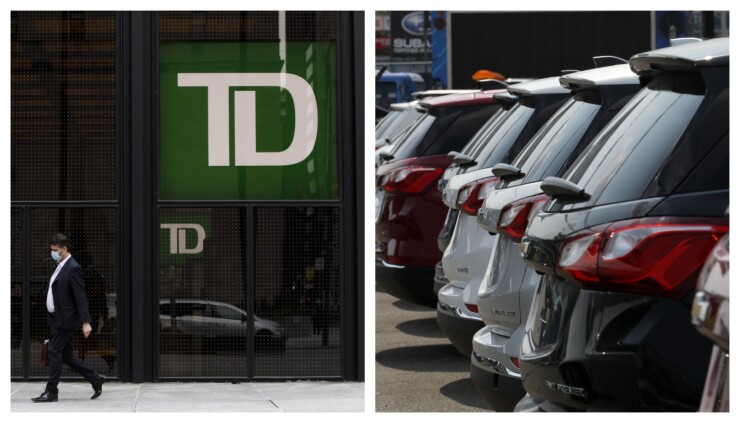Consumer groups are cheering a California Supreme Court decision that says auto lenders are liable for car purchasers’ legal fees in suits involving fraudulent vehicle sales.
One immediate impact of last week’s ruling is for Tania Pulliam, who is now eligible for at least $169,602 in attorney fees, on top of nearly $22,000 in damages. Pulliam had sued both her auto dealer and the lender, TD Auto Finance, over the sale of a car that allegedly did not have certain advertised features that she needed due to a disability.
But the

The hope among consumer advocacy groups is that the increased legal risk will prompt lenders to stop doing business with auto dealerships that engage in questionable practices.
“This is going to encourage the lenders who profit from their cozy relationships with them to be a little more diligent,” said Rosemary Shahan, president of the Sacramento, California-based group Consumers for Auto Reliability and Safety.
The American Financial Services Association, a trade group that represents auto lenders, said it was disappointed in the decision.
“Allowing unlimited attorneys’ fee awards helps one group of people in California — the attorneys,” spokesperson Ed McFadden said. “This is likely to lead to increased litigation that doesn’t help either the consumer or the auto industry.”
The ruling revolved around a decades-old Federal Trade Commission rule — and whether the rule says that lenders are only liable for refunding the price of a defrauded consumer’s car purchase, as opposed to also being on the hook for their attorneys’ fees.
Consumer groups and auto lenders
In a unanimous decision, California’s highest court rejected the lenders’ arguments. “It is clear that the FTC contemplated that state law might offer greater protections for consumers and that these protections might be accompanied by recovery in excess of the amounts paid on the contract,” Justice Goodwin Liu wrote in his opinion.
A spokesperson for TD Bank said the company does not comment on litigation.
The bank’s lawyers had argued that the California Supreme Court should overturn an earlier ruling by an appeals court, which found that Pulliam was eligible for nearly $170,000 in attorney fees. In a court filing last year, TD’s lawyers wrote that the FTC rule is “unambiguous” in limiting lenders’ liability to the purchase price of a car under the contract — which in Pulliam’s case was about $12,500.
Under the appeal court’s ruling, an “innocent creditor is liable for $170,000 or more based on a contract under which a consumer spent just $12,500 on a used car,” TD’s lawyers wrote in the filing. They warned that making lenders liable for consumers’ legal fees could prompt the industry to pull back on offering credit.
“If creditors risked uncapped attorney’s fees when financing consumer contracts, they would be less likely to take that risk and finance those contracts,” TD’s lawyers wrote last year.
But Pulliam’s lawyers argued that TD’s goal was to make it “impossible for consumers to sue the holders of their consumer credit contracts when they have been cheated by fraudulent sellers.”
The court’s ruling can “help really put teeth” in the FTC rule and make auto lenders in California refuse to work with dealers “engaging in shady practices,” Bernard Brown, a leading auto fraud lawyer, wrote in an email to consumer attorneys.
The Federal Trade Commission recently issued an advisory opinion that could make it easier for consumers to recover their legal costs from banks in situations where they were defrauded by a car dealer.
“The upshot would be to do a great deal to clean up the rotten used-car sales industry we have today,” Brown wrote, encouraging attorneys to look through their own state laws and take on similar cases.
The FTC, whose rule has been in place since 1975, weighed in on the California court battle indirectly in January. The agency released an advisory opinion emphasizing that its “rule does not eliminate any rights a consumer may have” to recoup attorney fees under state law.
The California ruling is significant because it clarifies the issue in the country’s most populous state, but lawyers pointed to the FTC’s advisory opinion as another source of increased legal risk for auto lenders.
Combined with the California ruling, the FTC’s opinion may encourage similar lawsuits elsewhere, said Alan Wingfield, a partner at Troutman Pepper who represents auto lenders. Another potential result is that lawmakers in other states will pass attorney-fee laws that resemble the California statute, he said.
“We’ll see this play out on a state-by-state, nationwide basis,” Wingfield said, adding that the California Supreme Court could “set the tone” for court decisions elsewhere.






